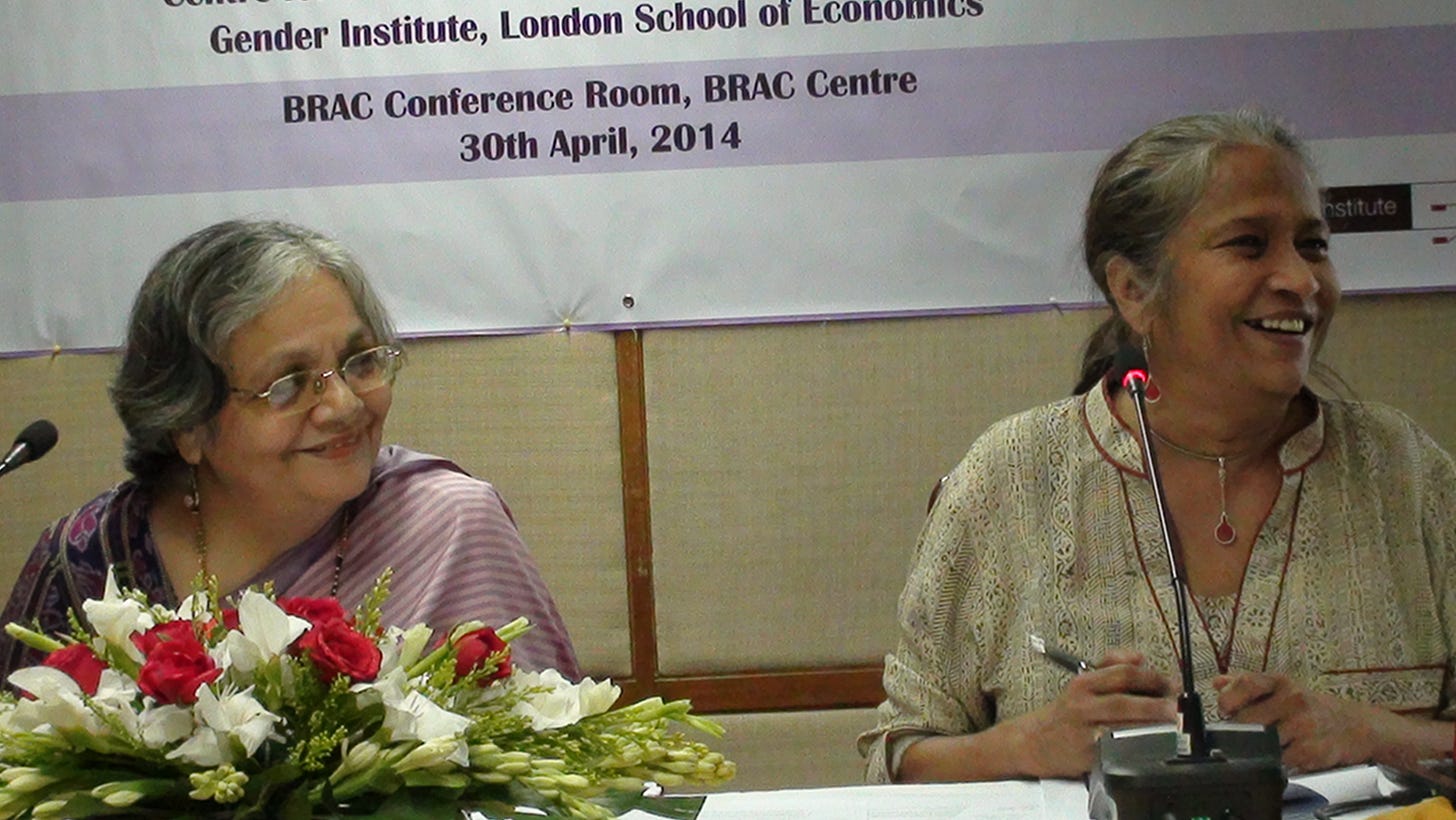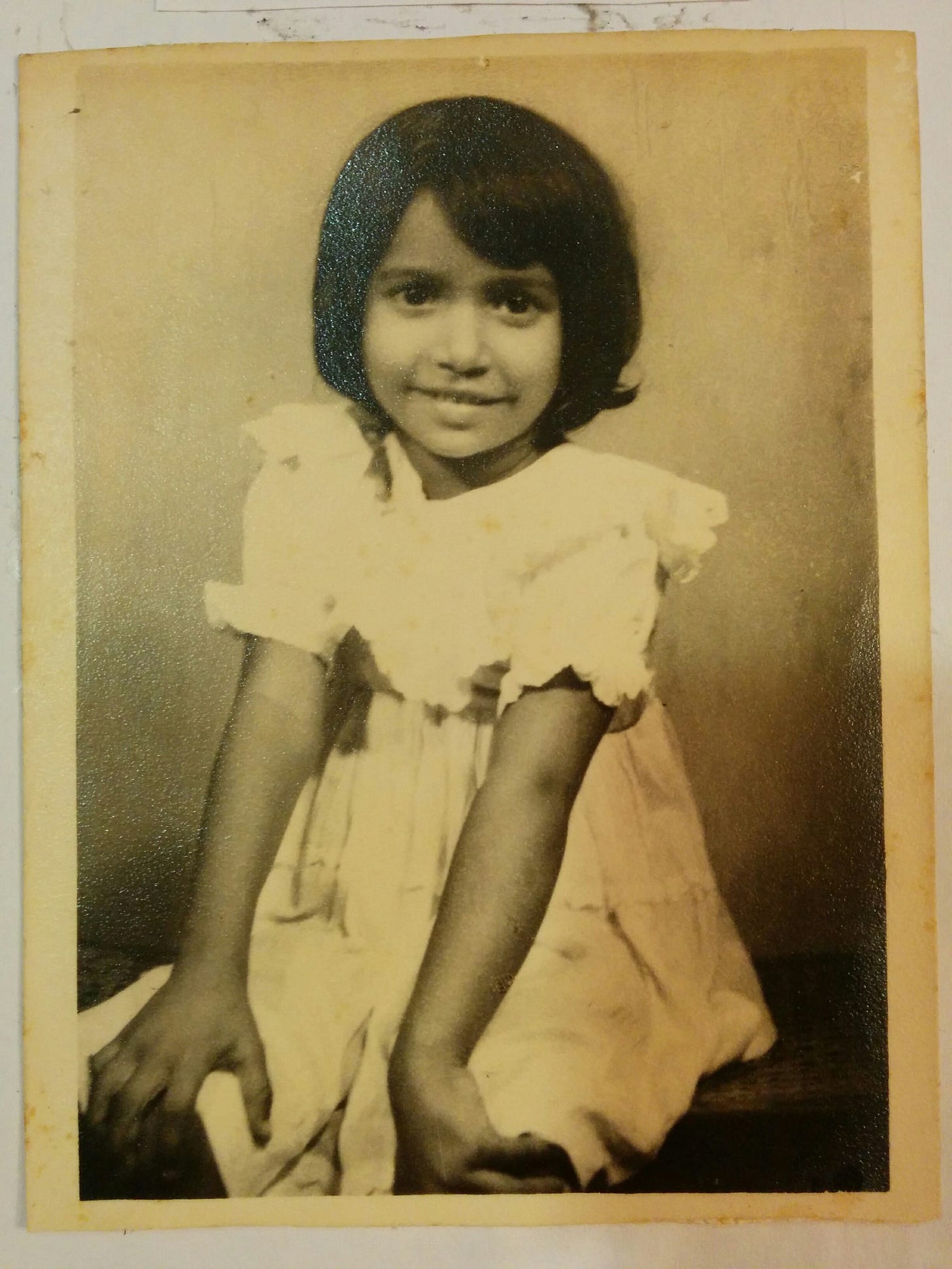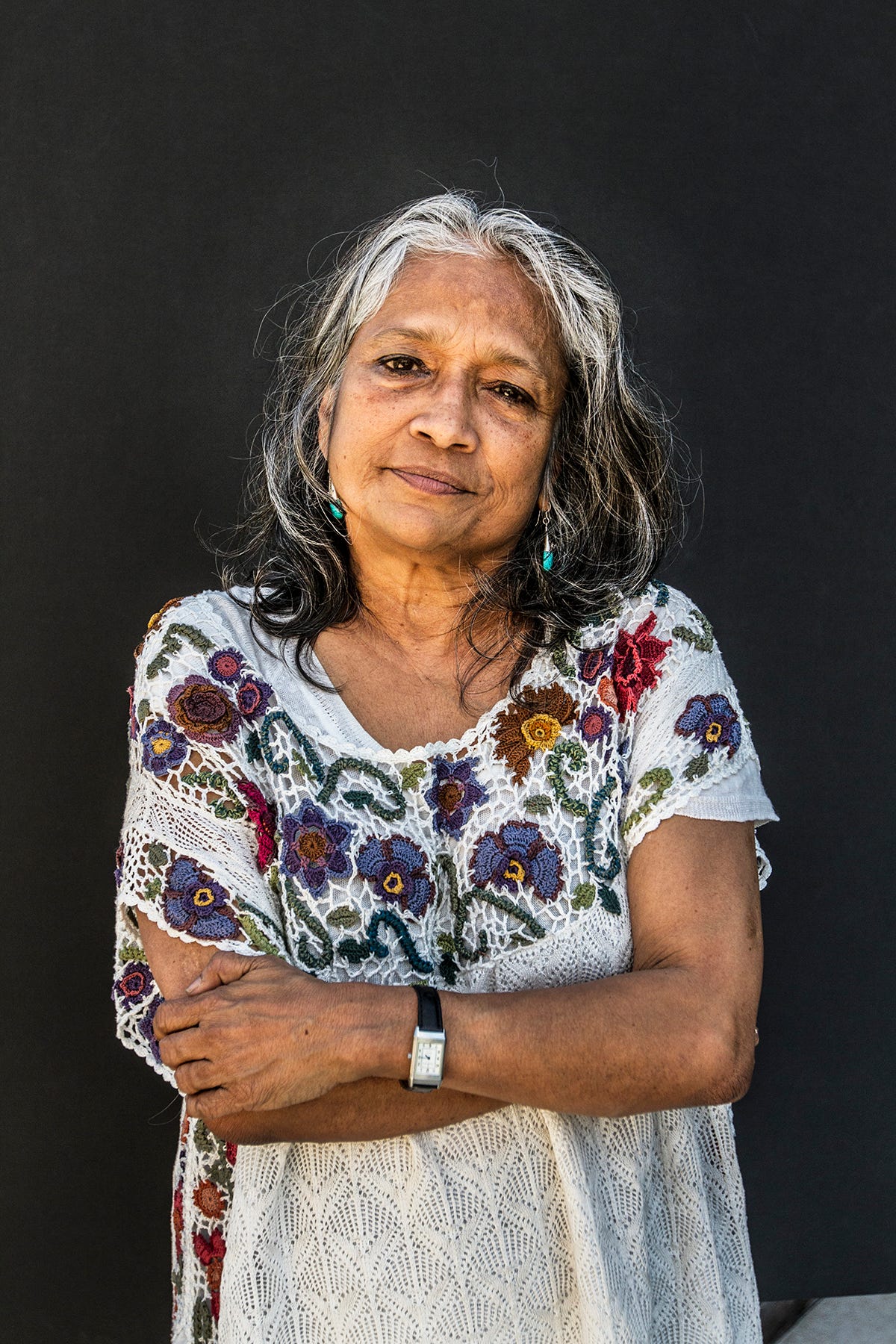Livelihoods, agency, and hope
Naila Kabeer on a career dedicated to hearing and elevating marginalized voices.
Early in her academic career, Naila Kabeer traveled back to her home country of Bangladesh to research women’s rapidly increasing labor participation in the garment industry. She was struck by how eloquently the women workers spoke about their role in the dramatic economic and social transformations unfolding in the country. Asked why employers were suddenly hiring women in a labor market historically dominated by men, one woman said it was because “we women are like birds with broken wings, the employers know we cannot fly very far.”
In the decades since, Kabeer – Professor of Gender and Development at the London School of Economics – has emphasized in her work how women and men from poor households speak about their lives. Some of their most memorable observations come from her research into their ideas about citizenship and social justice. “We are all warmed by the same sun, we breathe the same air,” said one man she spoke to, “but when it comes to land, why does it always belong to someone else?” Another pointed out: “You sleep in a five-story house, I sleep on the streets – can you call this a just society?” For others, justice was about the right to work, to a minimum income. “No one wants to beg, everyone has pride and self-respect.”
Throughout her career, conducting research at the intersection of economics, sociology, anthropology, and gender studies, Kabeer has continually sought to channel the voices of people who lack personal agency, while exploring how their agency might be enhanced.
“A mother might see her children’s teachers not showing up at school, or she might be overcharged by doctors – will she speak up?” said Kabeer. “That's why I put a lot of emphasis on agency. For people to make headway, they have to be empowered to speak up. And once people start speaking up, teachers and doctors might misbehave less. The starting point for me is, how do you change the world for people who have been denied voice and agency?”
From Bangladesh to Britain – finding a calling
Kabeer was born in Kolkata in West Bengal a few years after India’s 1947 partition. During the first year of her life, communal riots between Muslims and Hindus caused her family to flee to what was then known as East Pakistan and later became Bangladesh when it gained independence in 1971. But from age six, Kabeer attended an Irish Catholic boarding school in northeastern India – and she credits the nuns’ focus on values and integrity for sparking her early engagement on social issues. Her mother, a history professor and social organizer, was another strong influence.
“My mother was a rebel and a woman before her own time,” said Kabeer. “She worked all her life, trying to save the world, and left me with a sense that women should not rely on the whims of others to decide how to lead their lives. She led her life as she wanted.”
After her schooling, Kabeer enrolled to do a B.Sc in the Department of Economics at the London School of Economics. But after completing an undergraduate degree, a master’s degree, and half of a PhD, she decided that economics wasn’t for her. Switching to Population Studies, she spent a year and a half in a Bangladeshi village doing dissertation research on fertility behavior – at a time when the country averaged around seven children per woman and families had a strong male-child preference.
“My mother used to relate the story of my grandmother who had fourteen children, of which six boys and three girls survived,” said Kabeer. “But whenever asked how many children she had, my grandmother never talked about her daughters. I could tell that the bitterness of being overlooked stayed with my mother. It turned her into an activist for women’s rights. As an only child I had no experience of what that might have felt like, but later, living in the village, hearing mothers bemoaning the fact that they’d had another daughter, it brought home to me very vividly the secondary status assigned to women in Bangladesh.”
Kabeer joined the Institute of Development Studies after completing her PhD in 1985. She became part of a group of feminist anthropologists who were mainly focused on the interactions between the market economy and women’s unpaid work in the care economy.
IDS would be Kabeer’s institutional home for the next two and a half decades. After joining the School of Oriental and African Studies for a brief period, she returned to the LSE in 2013.
Crossing disciplines, with a focus on livelihoods
While grounded in economics, Kabeer’s research always draws from other disciplines: most frequently sociology and anthropology, but also occasionally philosophy, ethnography, history, and political science. Most of her research focuses on labor markets, gender, and livelihoods – with the broad goal of understanding how economic and social forces interact in the lives of marginalized people, and how those forces are confronted and transformed over time.
“I focus on livelihoods because it incorporates my concerns with income and wellbeing, with production and reproduction, with paid and unpaid, with formal and informal,” she said. “It’s a holistic concept, encompassing the things people value that require money as well as the non-monetary things they value. I focus on social protection as a key policy measure to compensate for the structural gaps that prevent people from realizing opportunities, if opportunities are there. And I focus on collective action: what motivates people to come together, not only in trade unions but in any form of association, to exercise their collective power and improve the terms on which they earn their livelihoods?”
“Triangle of possibilities”
In her research on gender and empowerment, Kabeer emphasizes that it’s not possible to bring about real change without engaging men. Her forthcoming book, Renegotiating Patriarchy: Gender, Agency and the ‘Bangladesh Paradox’, describes Bangladesh’s unexpected pro-poor and gender-equitable social progress in recent decades, offering evidence that this was a bottom-up, gradual, whole-of-society process.
“Women would often observe that men were changing with the changing times,” said Kabeer –quickly adding, however, that the book’s title emphasizes negotiating patriarchy rather than attacking or dismantling it. “Women would lose too much if they lost the support of their family and kinship and husbands. So what they are seeking is to find ways of negotiating cultural norms in such a way as to expand possibilities for themselves.”
The book is a story of gradually increasing agency for Bangladesh’s marginalized groups.
“People's life courses, particularly women's life courses, were prescribed from the day they were born,” she said. “But now life courses can take a diversity of trajectories, because they are exercising agency – and they're exercising agency because possibilities have come into view. It's a kind of triangle of possibilities. Agency, of course, takes courage. To take the risk, to do things differently. If you wanted the Bengali word for empowerment, I think it would be courage.”
Agency efforts: the long haul
Beyond her research, Kabeer’s advisory work focuses on translating these ideas into language that international agencies, governments, and NGOs can understand and embrace. Often, that means being critical of efforts that apply traditional development tools in search of rapid progress on complex issues, while encouraging more thoughtful approaches.

“You can’t expect a few weeks of training to overturn a history of patriarchal structures,” she said. “The most successful examples are multi-stranded programs, where you can take on issues like mindsets, livelihoods, safe spaces, and collective action. Organizations should be in for the long haul. But once change starts to happen, it can happen very fast. The challenge is that first phase: how do you get enough people to buy into the idea that they can do things differently?”
For Kabeer, the answer to that question all comes back to agency and ensuring people can speak up for themselves. “We're talking about finding ways of reaching people's inner capabilities, their internal map of the world. It’s their understanding of what could be possible – which you can't do in a very brief training.”
Looking back on her decades of research and advocacy, one word comes to mind for Kabeer.
“‘Hope’ is the most powerful word in my conceptual vocabulary,” she said. “When you talk about disempowerment and the suppression of agency, you're talking about the denial of hope, the denial of the capacity to aspire. It’s what makes people fatalistic and apathetic, resigned to their fate. But when you know there is hope, when you know that you can do something to make your future look different – that’s the beginning of change.”
Written by Greg Larson.
This blog is part of a series on Leveraging Personal Agency for International Development, a convening co-organized by The Agency Fund and the SEE Change Initiative at Johns Hopkins University.





